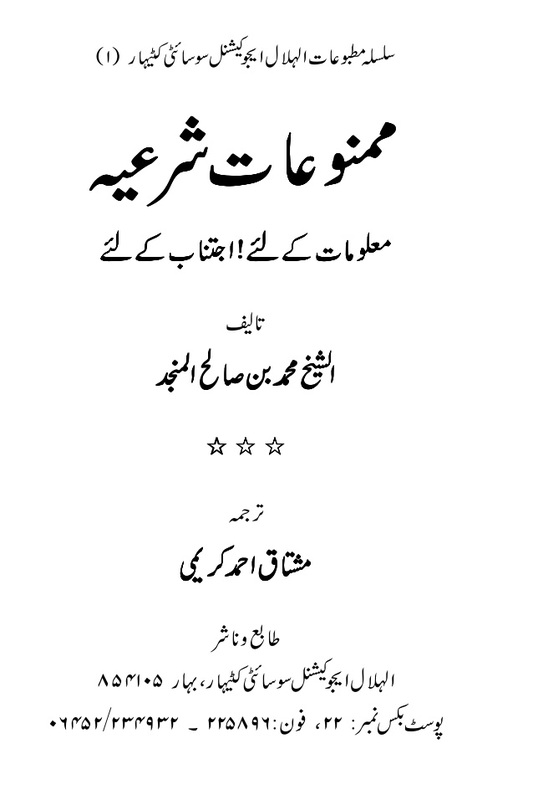Al Fiqh Al Islami Wa Adillatuhu English Pdf
Home Books Fiqh Al Fiqh-ul-Islami wa Adillatuhu 10 Vols (Complete) Al Fiqh-ul-Islami wa Adillatuhu 10 Vols (Complete). Advices; Al Adbab Al Mufrad.
Died August 8, 2015 Religion Era 20th century Region Jurisprudence Creed, () Main interest(s), Islamic legal philosophy Wahbah Mustafa al-Zuhayli (1932–2015) born in, was a professor and Islamic scholar specializing in. He was also a preacher at Badr Mosque in Dair Atiah. He was the author of scores of books on Islamic and secular law, many of which have been translated to English. He was chairman of Islamic jurisprudence in the College of Sharia at, and a signatory to the and documents. Contents • • • • • • • • Biography [ ] Zuhayli was born in the Syrian town of, north of Damascus, to a father who was a farmer by occupation. Zuhayli studied in the for six years, graduating in 1952 at the top of his class.
The media files you download with aio.how must be for time shifting, personal, private, non commercial use only and remove the files after listening. Aio.how is not responsible for third party website content. Download lagu akon beautiful house remix mp3. If one of this file is your intelectual property (copyright infringement) or child pornography / immature sounds, please or email to info[at]aio.how to us. It is illegal for you to distribute copyrighted files without permission. Aio.how is Media search engine and does not host any files, No media files are indexed hosted cached or stored on our server, They are located on soundcloud and Youtube, We only help you to search the link source to the other server.
Zuhayli furthered his Islamic education at the prestigious where he again graduated at the top of his class in 1956. After graduating in 1956, Dr. Zuhayli also received an in teaching Arabic from Al-Azhar. While studying in al-Azhar, Zuhayli studied in in, Egypt where he received a bachelor's degree magna cum laude in 1957. In 1959, he received a master's degree in law from 's College of Law.
In 1963, he received his doctorate with honors in law with a major in Islamic sharia, his thesis was 'The Influences of War on Islamic Jurisprudence: A comparative study including the eight schools of Islamic law and secular international law.' From 1963 Zuhayli taught at Damascus University where he was since 1975. He lectured in both the colleges of sharia and law and he specialized in Islamic law, Islamic legal philosophy, and comparative legal systems. He also taught as a visiting professor at the faculty of law at in Libya (1972–1974), the faculty of sharia law at the (1984–1989), the, Sudan, and the. Zuhayli also taught the principles of Islamic legal writing and evidence for graduate students in Sudan, Pakistan, and elsewhere.
Zuhayli's erudite understanding of Islamic law caused him to be chosen to design the curriculum of Damascus University's College of Sharia in the late 1960s. Zuhayli was a member of the Royal Society for Research on Jordan as well as many other worldwide Islamic legal bodies including the,, Saudi Arabia and the Islamic Fiqh Academies of the United States, India, and Sudan. He was also Chairman of the Research Institute for Islamic Financial Institutions.


Many of his books and writings also concern secular legal systems, such as international law or the law of the United Arab Emirates. Zuhayli also served as an Islamic legal consultant to Islamic financial companies and institutions including the International Islamic Bank. He was also a well known religious preacher in the Islamic world, appearing frequently on television and radio programs; he also frequently appeared in the Arab press. He was an imam and preacher at the and later a summer preacher at the Badr Mosque in Dair Atiah.
Zuhayli died on 9 August 2015 Zuhayli's Edicts [ ] Zuhayli was widely regarded as one of the foremost experts on Islamic law and legal theory in the world as well as a public intellectual and popular preacher. In his position on the Syrian Majlis al-Ifta he was responsible for issuing or religious opinions. Zuhayli's opinions were seen as very moderate – including his support for what he called, human rights, and freedom. Positions and Views on Theological/Doctrinal Matters [ ] Zuhayli defended the and schools of belief to be orthodox and defending the option of lay Muslims to follow a or school of Islamic jurisprudence in their everyday lives. His works on Islamic legal theory establish that traditional Sunni Islamic orthodoxy is defined by that which complies to one of the four valid Sunni, however he also stated that following one of the four madhhab is not obligatory – what is religiously obligatory is for the layman, defined as one who has not achieved the ability of independent legal reasoning, is to follow a competent valid orthodox. He stated that 'the truth is that the majority of were of the opinion that one should follow one of the four madhhab, yet others who disagreed with them, and they are also from had a different opinion and proofs and this is a place of recorded debate; it is the duty of the Muslim to obey what the scholars agreed upon () and this is the majority of legal questions, yet he does not have to obey the opinions of any particular group or sect, and we do not establish a ruling of disbelief nor do we argue with such people due to the fact that each group has their proofs, scholars, and teachers.